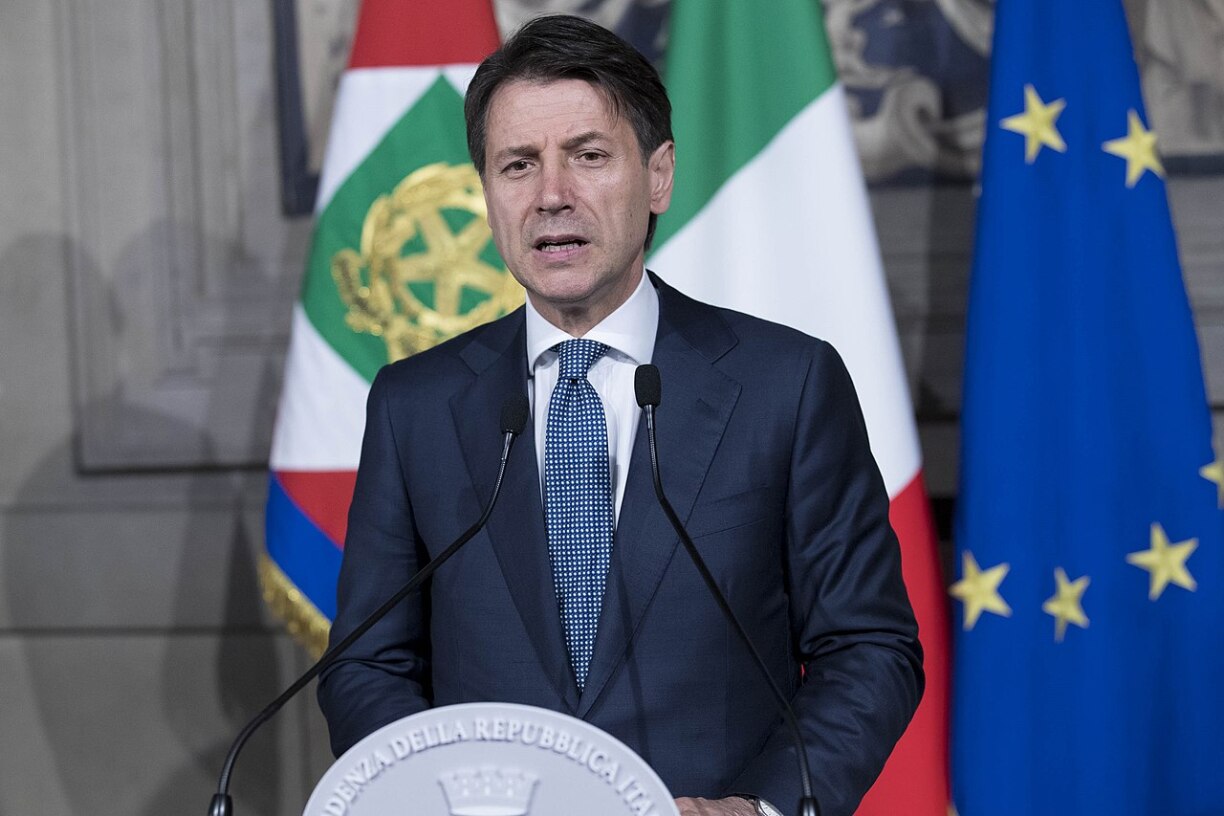
“We have allocated an emergency sum of 25 billion euros,” Conte told reporters during a break in a meeting on the government’s response to the rapidly escalating health crisis.
The entire sum “will not all be used immediately,” Conte added.
Economy Minister Roberto Gualtieri said Italy will immediately use “half of these resources” and keep the other half in reserve.
Italy unveiled a 7.5-billion-euro emergency response package last Thursday that officials later said would likely have to be increase to match the rapid rise in new infections and deaths.
A top economy minister had said on Tuesday that the package could reach 10 billion euros.
Italy, whose faltering economy is the third largest in the eurozone, needs special EU permission to spend more than allowed under the bloc’s strict budget rules for its 27 member states.
EU leaders had said they would accept Italy’s request when it still stood at 7.5 billion euros.
Britain unveiled Wednesday a package of stimulus measures worth £30 billion ($39 billion, 34.4 billion euros) to fight the growing threat from the coronavirus epidemic to the economy.
“I am announcing today in total a £30-billion fiscal stimulus to support British people, British jobs and British businesses through this moment. And of course if further action is needed if the situation evolves... I will not hesitate to act,” finance minister Rishi Sunak said in the country’s first post-Brexit budget.
He told parliament it was a “comprehensive” response to the virus fallout.
EU leaders sought Tuesday to reassure business and markets they will do what it takes to protect the bloc’s economy from the effects of the deadly coronavirus epidemic.
As Austria and Slovenia closed their borders with fellow member Italy, where the population is on lockdown, 27 member state leaders joined EU officials for a crisis video conference.
Afterwards, EU Commission president Ursula von der Leyen announced an investment fund of up to 25 billion euros ($28 billion) to support healthcare, jobs and small businesses.
“We’ll set up a task force to work with the member states to ensure that the money starts flowing in the coming weeks,” she said, vowing to seek to release 7.5 billion euros this week.
“We will use all funds at our disposal so that the economy in the EU resists and is resilient. We will be using all of our means so that our economy can weather the storm.”
The eurogroup -- finance ministers from the 19-member single currency bloc -- is to meet on Monday, and von der Leyen said Brussels would have propositions for them.
She said that state aid must be allowed to flow to countries that needed it and that Europe should make use of “flexibility” in its rules limiting public deficits.
This suggests Brussels will look the other way if member states boost public spending to overcome a slowdown caused by the virus, even if states breach budget guidelines.
“On both of these fronts, we will clarify the rules for the game for Member States very quickly. There will be guidelines by the end of the week,” she said.
Aside from the economic impact of the novel coronavirus, the leaders agreed to coordinate their public health responses better, after wrangling over medical supplies.
“Health ministers and interior ministers should consult daily to ensure proper coordination,” European Council president and host of the tele-summit Charles Michel said.
The EU chiefs said the Commission would coordinate supplies of such things as masks and respirators. France and Germany have been criticised for preventing their export.
France’s President Emmanuel Macron welcomed “the indispensable measures” to shore up the economy, but broke the united front to criticise Slovenia and Austrian for closing their Italian borders.
“I sincerely believe that these are bad decisions,” he said, adding that France does not yet see a need to impose a nationwide stay-at-home order like neighbouring Italy.
The novel coronavirus is still spreading in Europe, with Italy -- the worst affected country outside China with more than 10,000 infections and more than 630 deaths -- forced to take drastic measures to try to slow its spread.
“The goal is and the most important part right now is to slow down the spread,” von der Leyen said.
“So, to prolong the time before infection takes place ... because if there are too many infections in too short time, it is a huge strain for the health sector mainly for the ICUs,” or intensive-care units.
Ahead of the video summit, the European Commission praised Italy for taking “bold” steps to counter COVID-19, which include telling its 60 million citizens to stay at home and travel only for the most urgent health or work reasons.
European Central Bank chief Christine Lagarde joined the talks, as the EU mulls what financial interventions might be needed, after markets plunged on Monday, suffering their biggest one-day losses in more than a decade.
Michel also said that despite what he saw as the success of the videoconference format and the cancellation of many events across the globe, he expects the March 26 and 27 European summit to go ahead.